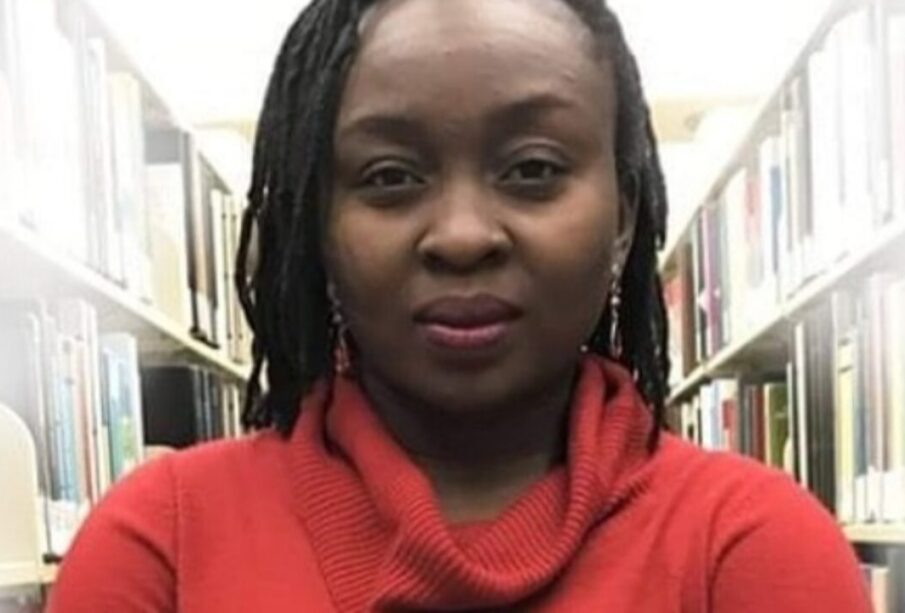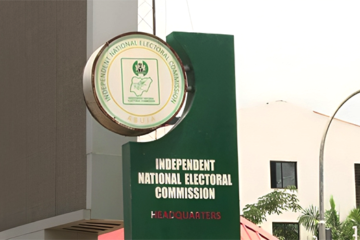[OPINION] Does Nigeria really have a voter apathy problem?

Abimbola Adelakun
By Abimbola Adelakun
Months ago, when the Independent National Electoral Commission announced its voter register listed a whopping 93.4 million potential voters, it was an exciting promise of how the elections would go. At the end of the day, the presidential election—which typically attracts more voters—ended up with an underwhelming figure. With all the raucous noise that the All Progressives Congress and the Peoples Democratic Party made about their “structure,” who would have thought that the eventual winner would not even have up to 10 per cent of registered voters and even less than five per cent of the estimated national population?
While the winner can be consoled that he won anyway, that figure is shameful. How democratic is the process of electing a leader representing only a margin of the population? If only such a tiny minority backs him, he is clearly unpopular and will lack the legitimacy he needs to function.
Following the last presidential election, post-election analysts have been turning the figures over to explain the voter turnout. As expected, they recite the same answers that boil down to how people have become jaded by a democracy that does not deliver on its promises. Truly, when you consider the serial decline in voter turnout every election season, they are probably correct that more people are no longer motivated to vote. In 1999, Nigeria had a 52.3 per cent turnout of voters for the presidential election. The figure peaked in 2003 with a 69 per cent voter turnout. Since then, it has been falling hard and fast like the quality of Nigerian livelihood. The February election saw only a paltry 29 per cent of registered voters. Far more people were recorded to have voted in 1999 under a shaky polity than 23 years later when we are a supposedly more stable society.
The inverse relationship between a ballooning voter register (and a growing population!) and shrinking election figures should make us pause and ask if Nigeria has a voter apathy problem. The most objective answer I can offer is that nobody really knows that for a fact.
The better question to ponder is whether the voter register is even credible. Every analysis I have read, so far, worked with the assumption that the existing data correlates to objective reality. But, what if it does not? Does INEC genuinely have that many people registered, or what they publish is merely the accretions of the names they collated while votes used to be recklessly padded? Their register likely includes people who have relocated locally or internationally and those who are probably dead. Do not be surprised if the register contains the names of those who were never even born but whose existence was cooked up by political engineers who needed to swell up the figure for rigging purposes. The difference between the voter register and the eventual voter turnout could be that the former is full of ghosts.
Before concluding we have a voter apathy problem, we will need to audit the voter register to determine if its contents have a reasonable relationship to reality. This is important for at least two reasons. One, the humungous sums regularly allocated towards election is based on the number of people that could potentially vote. If we are not as many, we might have just been deceiving ourselves and wasting money while at it. Two, beyond elections, we need a credible idea of figures for adequate planning. A country that cannot count—and account for—its own people will spend many years running yet arrive at the same spot.
Nigeria has always had a complex relationship with figures. Despite the estimates that put our population at 200 million plus, nobody can truthfully determine if we are that many or not. We like to think the sea of heads we see in cities like Lagos and Kano spell population density. Yet, it is likelier that we are more disorganised than populous. In the history of the country, we have never had a credible census to reasonably determine our numbers. We go by estimates and projections, not a systematic procedure that properly registers both births and deaths. Each census we have had in the past turned out to be a kéranmérò exercise where livestock get counted along with humans. There is another census coming up sometime in May. Watch how Nigerian politicians will bastardise the process when they turn it into a self-aggrandising means of claiming people they do not have in their territory.
Nigeria’s difficult relationship with figures is a fundamental one. While the effects manifest in every sphere of our existence, permit me to bring up another related aspect: the pre-election polls. Again, in a series of post-election analyses, people have wondered how, where, and why the polls that gave the victory of Peter Obi of the Labour Party got it wrong. Their attitude has either been to scorn the pollsters for what they got wrong or even talk down on the whole idea of polling itself. To an extent, they are right. Electoral calculations in Nigeria are easy enough to divine once you cast the òpèlè in the direction of region, religion, and incumbency. By those three measures alone, you could intuit who would win any election in the country.
But these critics tend to overlook two important factors in their assessment: number one is that election polling was invented and systematised in cultures where empiricism mostly correlates to reality. Conversely, Nigeria is not quantitatively coherent enough for electoral polling to adequately predict how the chips will fall. If pollsters worked with a voter register showing a huge number of potential voters but less than 25 per cent turned out, why would their predictions not fail?
Critics also forgot that polls measure how people could potentially vote but without anticipating what could go wrong on election day. No poll has been designed to adequately account for the typical Nigerian problems of electoral malpractices and systematic disenfranchisement. Societies where the format of polling people for elections were developed do not report issues of voter-buying, ballot-snatching, voter intimidation, technical glitches, poor logistics planning, and outbreaks of violence. The best a well-calibrated electoral poll can achieve in Nigeria is measure the public pulse and track how people would love to vote if the conditions were right. Not much can be guaranteed afterward. The polls that gave it to Obi touched on his burgeoning popularity even while those stuck on the safest mode of predicting Nigerian elections—religion, ethnicity, and the incumbency—insisted he would not win beyond a few states in the East.
The critics who said the polls did not factor the Nigerians living in rural areas and whose voting interests do not match those of the technologically savvy urban youths who make noise on social media must be stumped. The much-hyped rural areas did not turn out stupendous figures either. The PDP candidate Atiku Abubakar said 90 per cent of Nigerians that would vote were not on social media, but what he ended up with was so dismal you wonder about those so-called offline voters. Meanwhile, those poor figures are despite the reported cases of underage voting and multiple thumbprinting. There is a lot missing in the picture, and it needs serious quantitative analysis beyond the basic answer of “voter apathy.”
Overall, what we are dealing with here looks like a society used to operating in the darkness of guesstimates is now coming into the light of better technologies revealing the true state of its reality. While voter apathy might truly exist—and recent election figures is disappointing enough to demonstrate that—it is also evident that our inability to count and account for our population is what is haunting us presently. Rather than for our leaders to admit where the issue lies, they double down by allocating humongous sums to the elections.
Culled from The Punch











